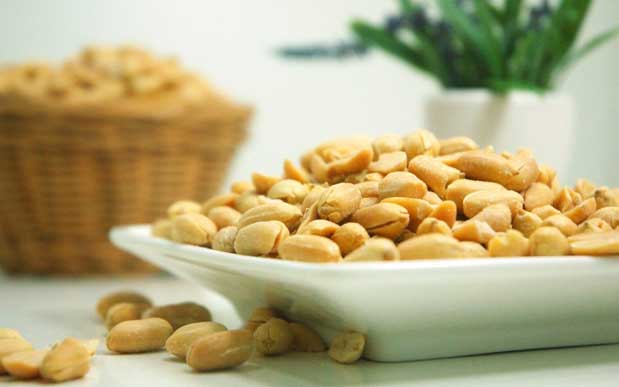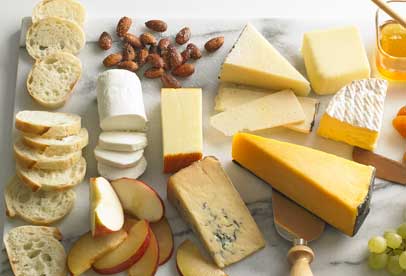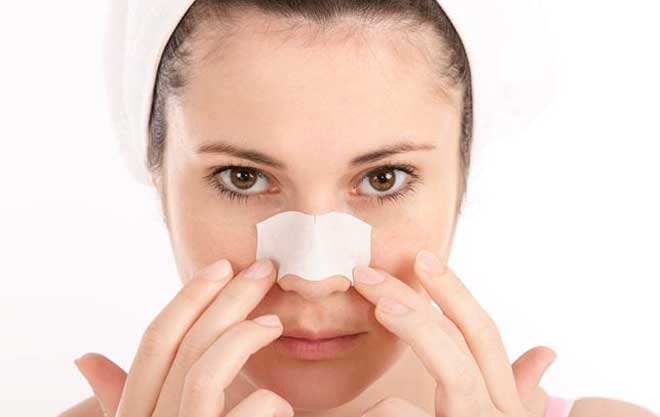
How to prevent peanut allergies in children?
About six million young children in the U.S. suffer from food allergies?most commonly to peanuts. Pediatricians and allergy experts once agreed that the best solution was to avoid peanuts altogether, and for years, the American Academy of Pediatrics (AAP) advised pregnant women with peanut allergies to stop eating peanuts while pregnant and to not feed peanuts to their children when they started on solid foods.
That changed in recent years, when two major studies proved that advice wrong. In one, the rate of peanut allergies was about 10 times lower for children who ate peanuts from an early age, compared to kids whose parents avoided giving their infants peanuts. Then, a rigorous trial in which young children were assigned to either eat peanuts early or avoid them showed again that kids who were introduced to peanuts when young had up to an 80% lower risk of developing peanut allergies than those who were not.
Based on those results, the AAP changed its advice for pregnant women about avoiding peanuts, recommending instead that women not avoid any particular groups of foods in the hopes of protecting their children from allergies. Now, the National Institutes of Health′s National Institute of Allergy and Infectious Diseases (NIAID) has issued new guidelines to help doctors and parents adopt this new thinking. The advice, for introducing peanuts to infants in order to prevent peanut allergies, appears in the Annals of Allergy, Asthma and immunology as well as on the NIAID website.
The recommendations provide guidance about how to safely introduce young children to peanuts from an early age. If babies are already allergic to eggs, or have severe eczema that doesn′t respond to treatment, they are considered at high risk of developing a peanut allergy, since their immune systems are already primed to be sensitive to certain allergens. For these babies, the guidelines recommend introducing peanuts at about four to six months, just as a baby is transitioning to solid foods. To make sure they don′t have a severe reaction to the peanuts, the panel advises that the peanuts be given in the doctor′s office.
For the other two groups?babies with mild to moderate eczema, and those without any known allergic reactions′the guidelines say that parents can introduce peanuts gradually at home, beginning at six months. (The guidelines also include recipes for the best type of peanut foods to use; whole peanuts aren′t appropriate for infants, since they can be a choking hazard.)
The hope is that by introducing peanuts early enough to children who might be allergic to them, doctors may be able to prevent them from ever developing a full-fledged allergy. While it′s not entirely clear how that happens, some kind of tolerance is likely involved. Just as babies can be trained to recognize that hot stoves are dangerous, so too can their immune systems be educated to see peanut proteins as harmless rather than as threats.
If such tolerance starts to reduce the number of new cases of peanut allergy, that could save millions of dollars in health care costs for treating children for allergic reactions, as well as the anxiety and stress of potentially life-threatening allergies. ?We anticipate that if this works as well as we think it will, it will drop not only the incidence and prevalence of peanut allergy, but also the host of problems that come with having a food allergy,? says Dr. Matthew Greenhawt, an assistant professor of pediatrics at Children′s Hospital of the University of Colorado, and chair of the food allergy committee of the American College of Allergy, Asthma and Immunology. ?Food allergies are associated with a poor quality of life, high cost to the patient and society, fear, anxiety and self-imposed restrictions. By preventing the allergy we also prevent this whole host of adverse things that accompany having a food allergy.?
The guidelines may take some getting used to, since they represent a significant change in the way doctors have previously handled peanut allergies. For one, the new advice does not use family history of peanut allergies as a criterion for whether an infant might be at high risk. Instead, it relies on the infant′s own reactions to egg and the presence of eczema. The guidelines also require specialists to spend more time, at least at the beginning of an infant′s care, to introduce peanut to the diet. But that time spent up front could save more later on, if that child does not develop an allergy and won′t need the years of medical care associated with it.
?I?m fired up about these guidelines; it′s something we can do to change the face of food allergy,? says Greenhawt. ?If we can prevent tens of thousands of kids from developing peanut allergy, we have to pounce on that opportunity.?
Related News

Ideal exercises to keep your heart healthy

Five foods that can cause problems if consumed on an empty stomach!

Top Natural Body Care Tips for Women

5 Reasons Cheese is Actually Good For Your Health

12 Real Amazing Benefits Of Skipping For Weight Loss

5 Effective Baba Ramdev Yoga Asanas To Increase Height

15 Best Heart-Healthy Foods

Natural Ways to Remove Blackheads on Face and Nose
Most Read
★Man has lived with giant neck for 13 years after going to doctors for help
★Everyday Medications You Should Never Take When You Exercise
★Face Scrubs and Face Packs
★Best and Worst Drinks for Weight Loss
★Mans lips exploded after he became 'addicted' to fillers
★Daylight Savings Time: That miserable time of year when many mourn loss of one-hour sleep
★Top 10 Homemade Fruit Packs for Glowing Skin
★Yoga Heals More than Just Your Body
★5 Effective Baba Ramdev Yoga Asanas To Increase Height
★Women found to appear up to 20 years younger if they stay out of the sun
★Research reveals surprising health benefits of chewing your food
★Face Open Pores
★Healthy eating
★5 Ways to Dry Herbs
★This is how many calories your tea and coffee habit is adding to your diet EVERY DAY
★Top Natural Body Care Tips for Women
★Surgery addict rushed to hospital after his body REJECTED his new nose
★8 Time-Saving Meal Prep Ideas Nutritionists Actually Use
★Losing Weight in Hot Weather Made Easy
★What dangers are hidden in your pillow?
★9 Simple Yoga Asanas & Tips for Weight Loss
★Medication Management Tips
★Do you want to be paid for sleeping well at night?
★Just ten minutes of play a day can help children reduce their risk of developing heart disease and diabetes later in life
★The tangy taste of Banaras
★15 Best Heart-Healthy Foods
★This Yoga Flow Will Instantly Boost Your Mood
★Popular weight loss strategies
★This One Exercise Helps You Become a Better Runner
★Dairy and vitamin D supplements protect against bone loss
★The best skin care quickies men with oily skin can get
★15 Kitchen Herbs and Spices with Powerful Health Benefits
★4 Totally avoidable gym mistakes
★Hard work, no pay linked to mental health issues in comedians
★Smoking and sight loss warning
★Fasting might be good for your healh, research says
★Hair removal injuries rocketed NINE-FOLD since 1991
★WHO says strawberries may not be so safe for you
★Top 10 Fruits To Eat To Lose Weight Quickly
★Study finds dramatic weight loss can be achieved WITHOUT counting calories
★Five-second rule for food dropped on the floor approved by germ scientists
★5 Dairy-Free Cheese Options Worth Trying
★5 most surprising cosmetic surgery trends across the globe
★Red Heart Tea Recipe
★Brain health food guide for older adults
★The Beauty Benefits of Exercise
★3 Must Try Face Yoga Exercises For Glowing Face
★Correlation Between Almonds and Weight Gain
★Vitamin reverses aging in organs and muscles
★Why You Probably Shouldnt Take Diet Advice from Your CrossFit Coach
